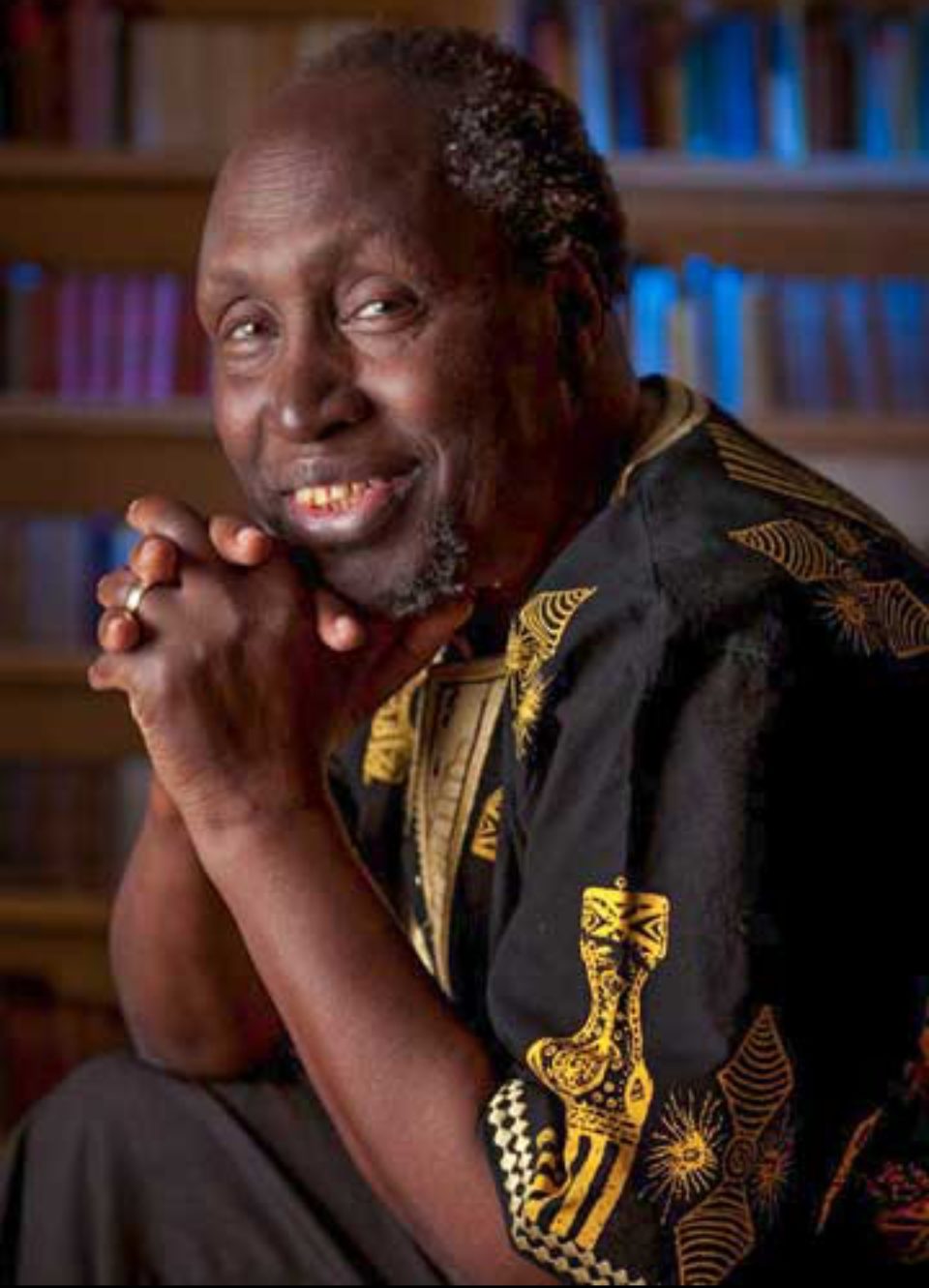By Osa Mbonu-Amadi
The literary world mourns the loss of Ngũgĩ wa Thiong’o, the celebrated Kenyan author, scholar, and activist, who passed away on Wednesday evening, 28 May 2025. His family announced the news with profound sadness.
“It is with a heavy heart that we share the passing of our beloved father, Ngũgĩ wa Thiong’o,” his daughter, Wanjiku wa Ngugi, wrote in a heartfelt Facebook post. “He lived a full life and fought a good fight.” Reflecting his final wish, she added, “Let us celebrate his life and work. Rîa ratha na rîa thŭa. Tŭrî aira!” — a Gikuyu phrase meaning, “With joy and sorrow, we are proud.”
The family has pledged to provide more details soon. Wanjiku also revealed, “Our spokesperson, Nducu wa Ngugi, will share plans for his celebration of life in the coming days.”
Fans, admirers, and literary communities worldwide eagerly await memorial services and public tributes to honor this towering figure in African literature.
Ngũgĩ wa Thiong’o left behind a legacy that transcends borders and generations. Born in 1937 in Kamiriithu, Limuru, Ngũgĩ wa Thiong’o’s work profoundly shaped African literature and postcolonial discourse. His novels—such as A Grain of Wheat, Petals of Blood, and Devil on the Cross—vividly explored Kenya’s struggle for independence and the complexities of its postcolonial identity.
A passionate advocate for African languages, Ngũgĩ rejected colonial linguistic legacies, choosing instead to write in his native Gikuyu. His 1977 play, Ngaahika Ndeenda (I Will Marry When I Want), performed entirely in Gikuyu, led to his detention without trial by the Moi regime. This pivotal moment marked his definitive shift from English to indigenous language writing, even as he later translated his works for global audiences.
Despite decades spent in exile—teaching at prestigious institutions such as Yale University and the University of California, Irvine—Ngũgĩ’s heart remained firmly rooted in Kenya. His activism and fearless critiques of injustice continued to resonate powerfully across the continent.
Beyond his literary achievements, Ngũgĩ mentored generations of writers and founded initiatives to promote African literature, leaving an indelible mark on the cultural landscape.
Already, tributes to Ngũgĩ wa Thiong’o are pouring in from across the globe. Social media platforms have been flooded with tributes celebrating Ngũgĩ’s enduring influence:
@LitLoverKE wrote, “Ngũgĩ wa Thiong’o taught us to tell our stories in our own tongues. His courage in the face of oppression transformed African literature forever. Rest in power, mwalimu.”
@GlobalReader23 shared, “From Weep Not, Child to Wizard of the Crow, Ngũgĩ’s words challenged empires. Heartbroken but inspired. #NgugiLegacy.”
Kenyan activist @JusticeNowKE added, “He exposed neocolonial rot and restored pride in Gikuyu. Ngũgĩ’s fight lives on in us. #AfricanLiterature.”
@BookFanatic254 noted, “His exile never dimmed his love for Kenya. Ngũgĩ’s novels are our history and our mirror. We will celebrate him always.”
Ngũgĩ is survived by his children and grandchildren, many of whom continue his legacy as writers, academics, and activists. As @FamilyTalesKE posted, “His children, like Wanjiku and Nducu, embody his spirit—storytellers and truth-seekers. What a remarkable lineage! #NgugiLives.”
The late fearless and iconic author has had an enduring influence, both in the literary world and in Kenya’s political sphere. His seminal 1986 work, Decolonising the Mind, remains a foundational text in discussions of language, identity, and postcolonial thought. @ScholarMuthoni tweeted, “Ngũgĩ’s call to decolonize our minds reshaped how I teach. His loss is deeply felt, but his words endure.”
As the world mourns, it also honors his wish for celebration. Literary festivals, readings, and commemorative events are planned both in Kenya and internationally. The Nairobi Literary Festival announced, “We are organizing a Gikuyu reading of Petals of Blood to honor Ngũgĩ. Stay tuned! #CelebrateNgugi.”
Ngũgĩ wa Thiong’o’s legacy is a testament to the power of language, courage, and cultural pride—a legacy that will contin
ue to inspire generations to come.


